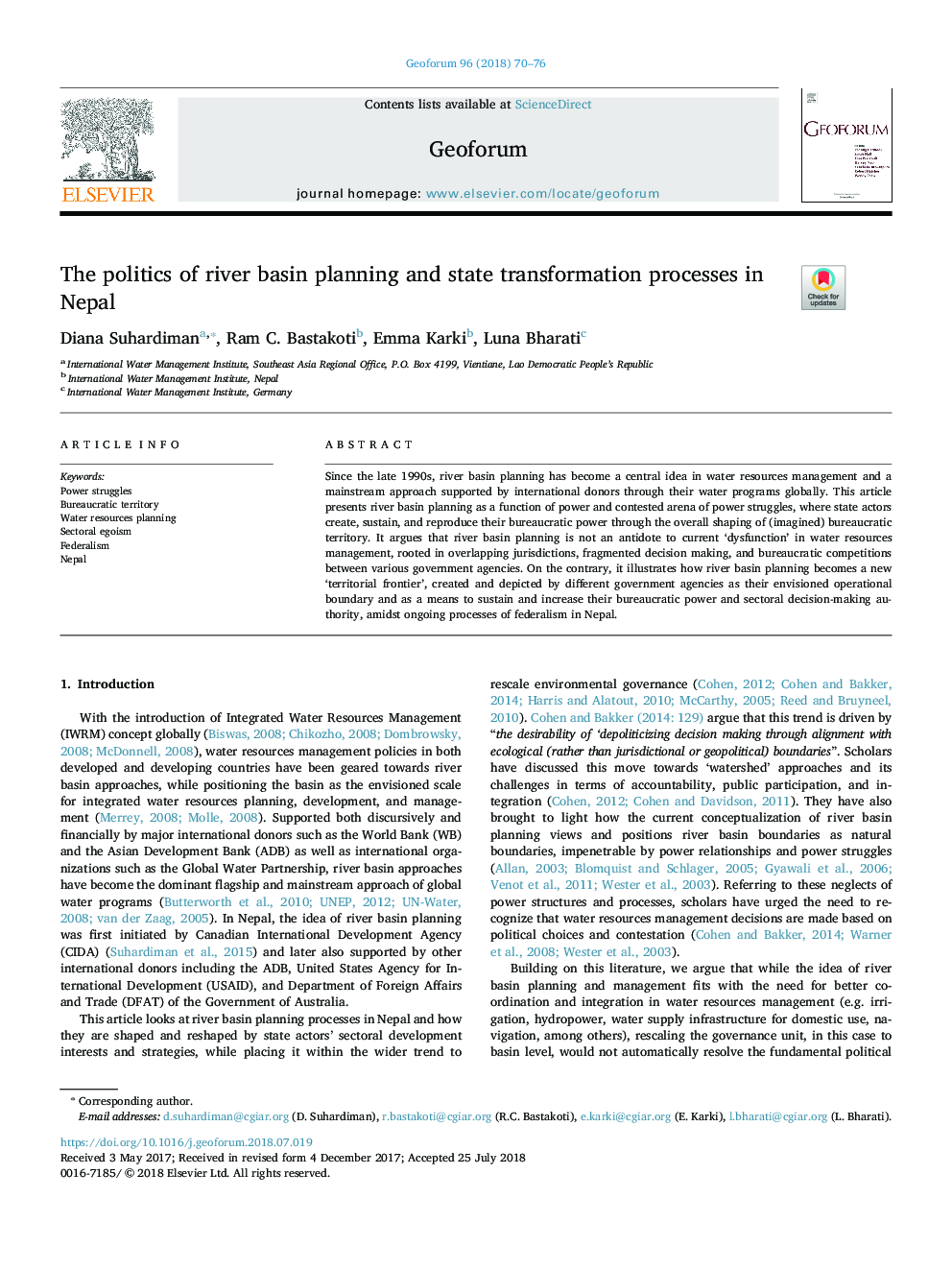| Article ID | Journal | Published Year | Pages | File Type |
|---|---|---|---|---|
| 7353252 | Geoforum | 2018 | 7 Pages |
Abstract
Since the late 1990s, river basin planning has become a central idea in water resources management and a mainstream approach supported by international donors through their water programs globally. This article presents river basin planning as a function of power and contested arena of power struggles, where state actors create, sustain, and reproduce their bureaucratic power through the overall shaping of (imagined) bureaucratic territory. It argues that river basin planning is not an antidote to current 'dysfunction' in water resources management, rooted in overlapping jurisdictions, fragmented decision making, and bureaucratic competitions between various government agencies. On the contrary, it illustrates how river basin planning becomes a new 'territorial frontier', created and depicted by different government agencies as their envisioned operational boundary and as a means to sustain and increase their bureaucratic power and sectoral decision-making authority, amidst ongoing processes of federalism in Nepal.
Related Topics
Social Sciences and Humanities
Economics, Econometrics and Finance
Economics and Econometrics
Authors
Diana Suhardiman, Ram C. Bastakoti, Emma Karki, Luna Bharati,
